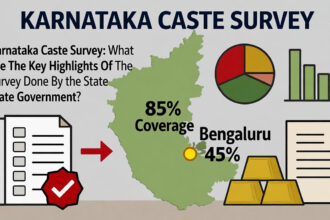Elon Musk vs. Donald Trump
By The News Drill
In a stunning twist to their once-friendly association, tech titan Elon Musk and U.S. President Donald Trump have become embroiled in a heated public feud. Once seen as strategic allies navigating the intersection of business and politics, the two high-profile figures have turned on each other in a fiery exchange marked by personal jabs, political blame, and even shocking allegations involving the Epstein files.
The Fallout Begins: A Bill and a Battle
The dispute ignited after a disagreement over what Trump called “One Big Beautiful Bill,” a proposed economic and tech regulation package that Musk publicly criticized. The bill reportedly included incentives for American manufacturing but also carried tighter controls on artificial intelligence and social media platforms—areas directly impacting Musk’s business empire, including Tesla, SpaceX, and X (formerly Twitter).
Musk blasted the legislation as “anti-innovation” and “big government overreach,” warning that it would stifle technological progress.
Trump, in response, lashed out at Musk on Truth Social, writing:
- “Elon’s success is built in America, by American taxpayers. Ungrateful. He begged for support and now cries about responsibility.”
- This exchange triggered a digital war of words, dragging both their supporters into an online frenzy.
Musk’s Bombshell: Trump in the Epstein Files
- The situation escalated dramatically when Musk made a jaw-dropping claim during a Spaces session on X, stating that Donald Trump’s name appears in the infamous Epstein files. Without providing detailed evidence, Musk remarked:
- “People should look into who’s really in the Epstein documents. Trump’s name is there too—don’t let them fool you.”
- This allegation sparked immediate media attention and social media outrage, reigniting discussions around Jeffrey Epstein’s network and the public’s right to know which powerful figures were entangled in the scandal.
- Trump’s team swiftly denied the accusation, calling it “baseless defamation” and accusing Musk of trying to distract from his own controversies, including recent lawsuits and regulatory investigations into Tesla’s autonomous driving claims.
A Clash of Power and Ego
Observers note that the Musk–Trump fallout reflects deeper tensions in the modern American right wing.
Both men wield enormous influence: Trump as the leading Republican presidential contender, and Musk as a cultural and technological force with a direct line to millions via his social platforms.
Political analysts suggest Musk is attempting to distance himself from Trump to cultivate a more centrist or libertarian image ahead of the 2026 midterms and potential political ventures of his own. Meanwhile, Trump—known for his zero-tolerance approach to perceived betrayal—is treating Musk’s criticism as a personal attack.
Public Reactions: Divided Loyalties
Reactions have been sharply divided:
- Conservatives aligned with Trump have accused Musk of arrogance and betrayal.
- Tech libertarians and Musk supporters claim Trump is attacking the very innovation he once championed.
- Mainstream media outlets have raised questions about both figures’ pasts, pushing for more transparency regarding the Epstein files.
Trending hashtags like #TrumpVsMusk, #EpsteinFiles, and #TechVsPolitics continue to dominate social media, indicating widespread public engagement in what has become a spectacle of power, scandal, and shifting alliances.
What’s Next?
As the 2024 election aftermath continues to shape American politics and tech policy debates intensify, the Musk–Trump feud may become more than just a personal spat. It could mark a turning point in how Silicon Valley and populist politics interact in the years to come.
For now, the world watches as two of the most influential men in America—once allies—continue to battle in full public view, their clash reshaping political discourse, digital media, and the boundaries of personal power.
Stay tuned to www.thenewsdrill.com for updates on this developing story.
Follow us on X, Instagram, and Facebook for real-time coverage















